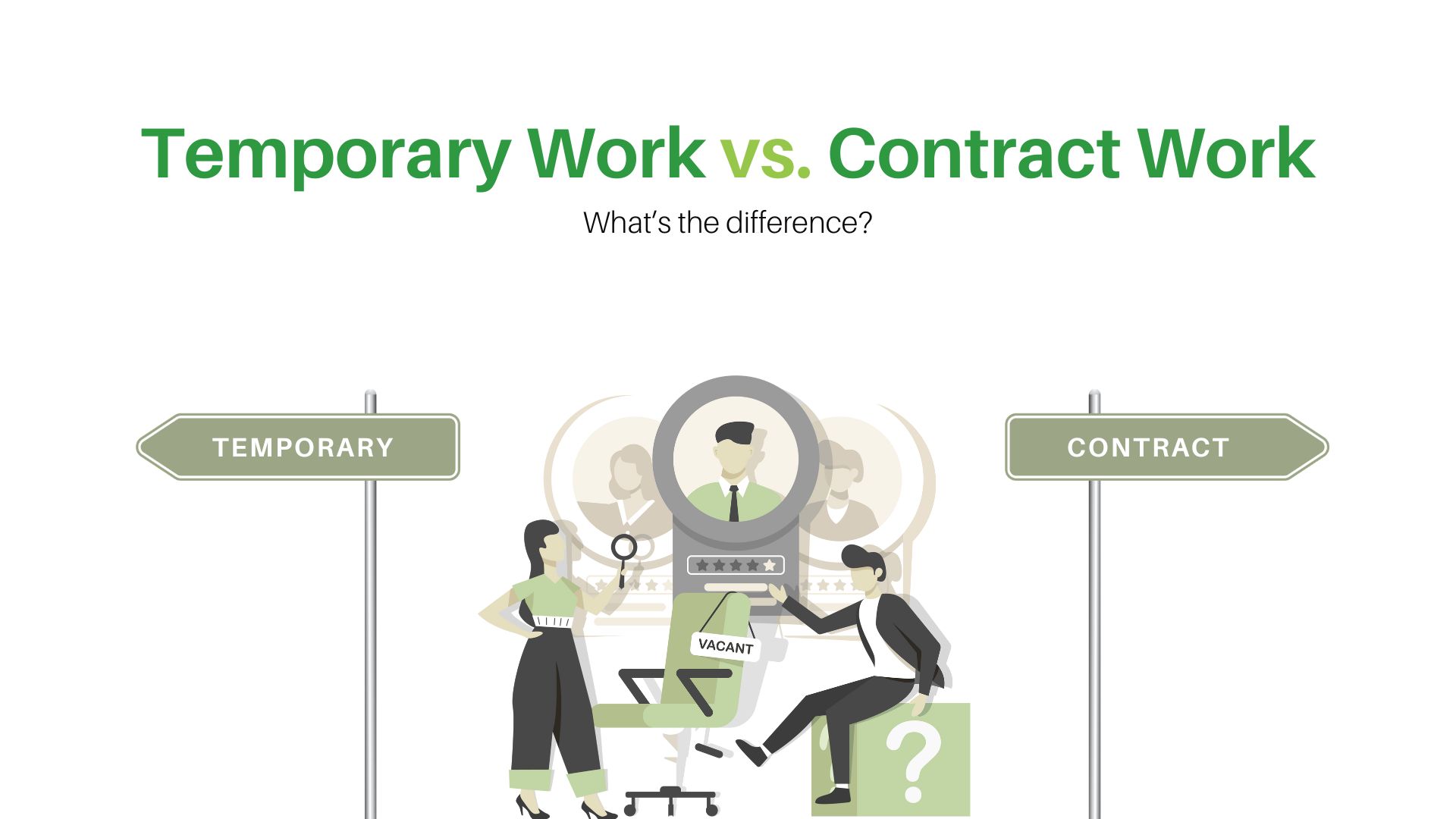Whether you’re looking for job opportunities to fill an employment gap or to allow for more flexibility, you’ve probably come across terms like “temporary work” and “contract work.” They may sound similar, but there are key differences, particularly in terms of pay, benefits, job security, and employment rights.
Understanding these differences can help you make more informed decisions about your next job move.
What is Temporary Work?
Temporary work (or temp work) means you’re employed on a short-term basis, often through a recruitment agency like Lowie. You might be filling in for someone on leave, helping during a busy season, or supporting a short project.
Example: A warehouse needs extra help during the Christmas rush. They bring in temporary staff for 6 weeks via a recruitment agency.
Some points to note:
- You’re usually an employee of the recruitment agency, not the company you work at.
- Your rights such as holiday pay, ACC, sick leave, minimum wage, and health and safety are covered by New Zealand’s employment law.
- The work can range from a few hours to several months.
- You might be offered casual or fixed-term employment agreements.
What is Contract Work?
Contract work usually means you’re working for yourself, not as an employee. You’re considered an independent contractor providing services to a business under a contract for services.
Example: A company needs a website built and hires a contractor to complete the project over three months.
Some points to note:
- Contractors are not covered by the Employment Relations Act.
- You’re responsible for your own tax, ACC levies, and KiwiSaver contributions.
- You usually don’t get holiday pay, sick leave, or redundancy pay.
- Contracts are often project-based or time-limited, with clearly defined deliverables.
Key Differences at a Glance
| Feature | Temporary Work | Contract Work |
|---|---|---|
| Employment Status | Employee (usually via agency) | Self-employed (contractor) |
| Pay | Hourly or weekly wage | Invoiced project or hourly rate |
| Leave Entitlements | Yes (holiday pay, sick leave) | No (must factor into your rate) |
| Tax & KiwiSaver | Handled by employer/agency | You manage your own tax and contributions |
| Job Security | Fixed-term or casual, based on assignment | Ends when the contract ends |
| Employment Protections | Yes (Employment Relations Act applies) | No employment protections |
Which One is Right for You?
Temporary work might suit you if:
- You’re looking to get back into the workforce quickly
- You want employment rights
- You prefer not to manage your own taxes or admin
- You want to gain experience in different industries
Contract work might suit you if:
- You enjoy being your own boss
- You want control over your hours and pay rate
- You have a specialised skill or service
- You’re comfortable managing your own taxes and accounts
Know Your Rights and Choose What Works for You
Whether you’re considering temporary roles through an agency or thinking of freelancing as a contractor, it’s important to understand your employment status and what that means for your rights and responsibilities.
If you’re unsure about what type of work is best for your goals, a recruitment agency like Lowie Recruitment can help guide you. We place workers in a wide range of temporary roles across logistics, warehousing, aged care, and more, with all the legal protections and support of being an employee.
Ready to start your next temporary job? Get in touch with Lowie today.

